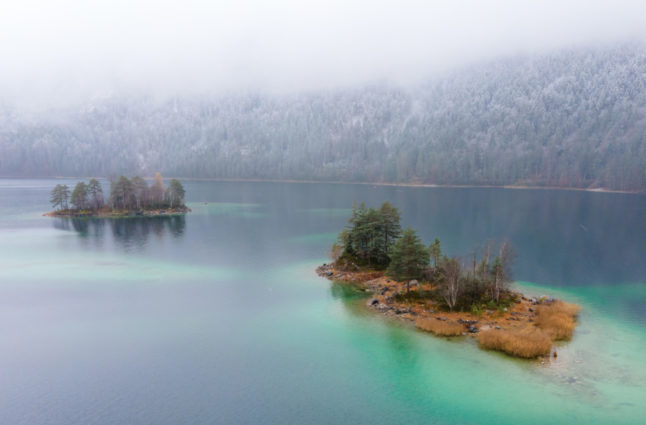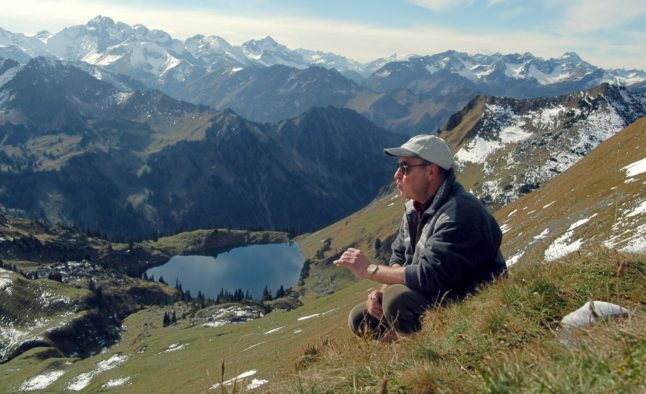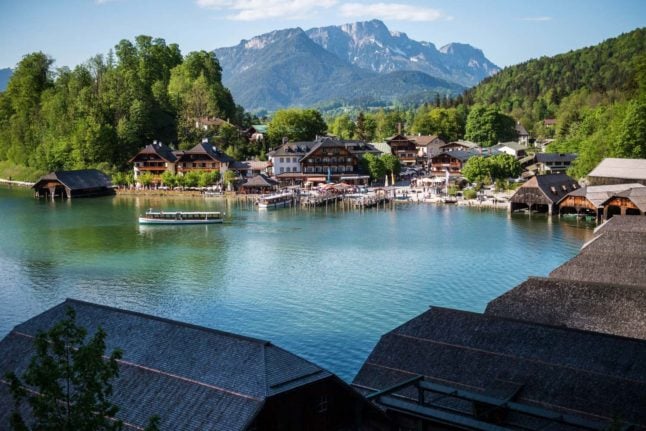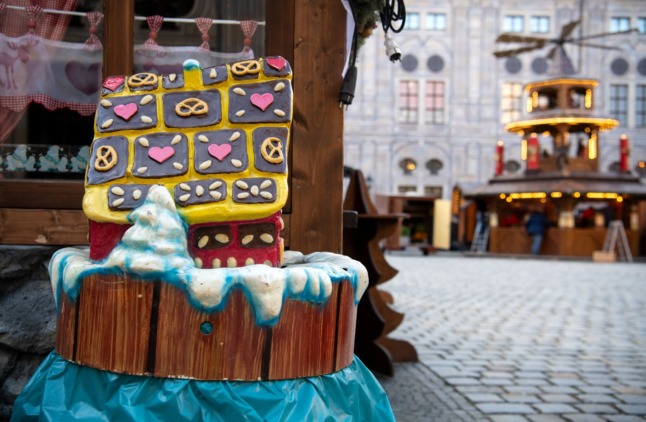Take a long, relaxed stroll, and perhaps a swim in the cold clear water (if you dare). If you’re still in need for inspiration, we’ve got you covered.
Here’s are five of Bavaria’s most beautiful lakes.
Fichtelsee
Fichtelsee, Germany. Today. 📷 pic.twitter.com/viTzSNnK7G
— Dominik Höcht (@ohBananaJoe) April 14, 2020
Honestly, this is not one of the lakes you would automatically think about if someone mentioned Bavarian lakes. Where’s the mountain view, where are the masses of tourists? But that’s exactly what makes it so charming.
READ ALSO: Eight beautiful Bavarian day trips you can’t miss
Almost completely surrounded by spruces, it feels like bathing in a forest. Especially in the morning or evening sun, this feels like a place that would exist in an old European fairy tale. Due to the acidity of the water (entirely harmless to the human skin) there are little fish and other aquatic animals in the lake, which adds to its mysteriousness.
The Fichtelsee is located in northern Bavaria, about half an hour northeast of Bayreuth.
Königsee
Now this is the picture many tourists have in their mind when they hear Bavaria: clear, deep-blue water, surrounded by mountains and greenery. Some more idyllic details: the St.-Bartholomä-Church (situated beautifully in front of the Watzmann mountain) and the Schrainbach waterfall. Make sure to take a boat ride to experience the famous echo that can be heard on the lake.
Located in the Berchtesgardener Land, the lake is located at the most southeastern point of Germany, bordering Austria. If you feel sporty, hike up the Grünstein and enjoy the view all over Königsee from above. (It’s worth it!)
Eibsee

The picturesque Eibsee in November 2020. Photo: DPA
Below Germany’s highest mountain lies one of its most breathtaking lakes. Eibsee has it all: Clear water to bathe in, a hiking trail that leads around the lake, and a gorgeous view at the Zugspitze. On a hike around the lake you are bound to find many other gems — little waterfalls, trees that grow in the water and the most instagrammable boulder in Germany.
READ ALSO: Record-breaking cable car for tallest mountain in Germany to open
Located near Garmisch-Patenkirchen, about 1.5 hours south of Munich, the lake is easy and quick to reach, both by car and public transportation. And again: Austria’s not far, so why not make a quick trip to the other side and get some nice southern goodies.
Walchensee
Eibsee is not the only lake in Bavaria that is reminiscent of the Caribbean, or perhaps the Maldives. A deep turquoise color and quite little amount of minerals in the water, which makes the water feel incredibly ‘soft’ on your skin, makes all your swimming dreams come true.
A bonus: You can take the cable car (or hike) up to the Herzogstand and enjoy an amazing view of not only one, but two lakes — Walchensee on one side of the hill, Kochelsee on the other.
Located about an hour south of Munich, it is a bit closer to the city than Eibsee, and therefore even easier to reach for a day trip.
Seealpsee

This is a really special lake. Why? Contrary to the other ones on this list, this lake is actually situated at 1,622 metres above sea level. (Munich for example is situated at about 520 meters.) Instead of looking up at the mountains, you will be in the middle of them.
That makes the lake also quite hard to reach. Instead of parking your car and walking for 10 minutes, prepare to take the Bergbahn (cable car), and for a subsequent hike that really should not be underestimated. There’s another way to get there: Hiking through the Oytal without taking the cable car. Please don’t take that way unless you’re an experienced hiker!
Swimming in the lake is not advisable, as the lake is very cold and deep, and has a complex underwater cave system that remains partially undiscovered until today.
The lake is located near Oberstdorf, about two and a half hours by car from Munich. To avoid confusion: There is another scenic lake in Switzerland that carries the same name.
By Lisa Schneider



 Please whitelist us to continue reading.
Please whitelist us to continue reading.
Inland freshwater swimming is for me one of the greatest pleasures of living in Germany. That marvellous feeling of emerging fresh and without having to shower off all that sea salt. Mind you, it isn’t always a natural lake . . . here in Baden, we live within 5km of the Rhine and the whole area is full of gravel pits, both active and abandoned. The water quality is wonderful and the feeling of tiny fish nibbling at the trapped air bubbles on the skin of one’s legs offers a really sensual free massage. Most proprietors of old gravel pits do their best to dissuade swimmers by putting up ‘danger’ or ‘no swimming’ signs, probably because they’re afraid of drownings, but in a rather un-Germanic way these are mostly ignored as the whole community, including our friend the former Burgermeister, plunge in on a hot day. Heaven!